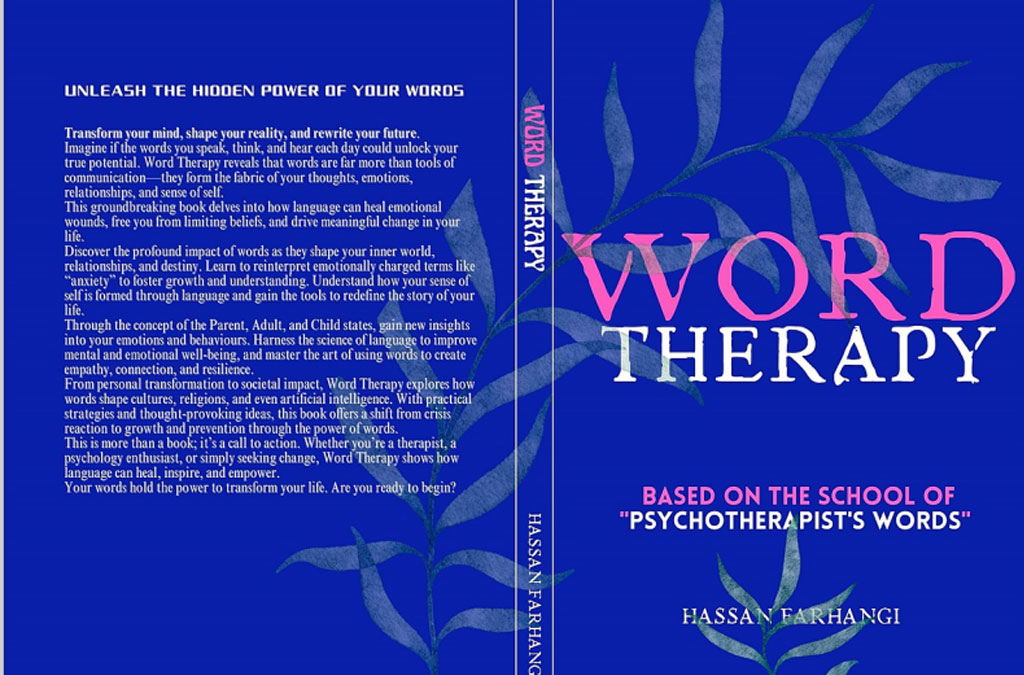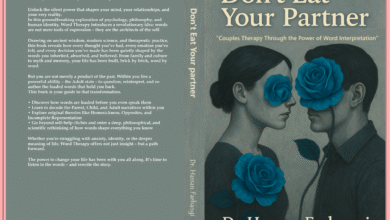A Critical Review of “Word Therapy”

In a literary landscape saturated with self-help manuals and psychological frameworks, Word Therapy emerges as a luminous anomaly—a work that does not merely add to the discourse but seeks to redefine the very foundation upon which our inner lives are constructed. This book is not just read; it is experienced, felt, and, most importantly, lived. It whispers truths we have long known but forgotten, hidden beneath the noise of habitual language and routine thinking.
The core premise of Word Therapy is both radical and elegantly simple: words are not passive vessels carrying meaning; they are active forces that construct our realities. Where traditional psychology excavates the past or navigates cognitive pathways, this book plunges into the intimate architecture of language itself, positioning words as both the map and the territory of human existence. This is not therapy about words; it is therapy through words—an invitation to dismantle, examine, and rebuild the linguistic scaffolding that shapes our identities.
One of the book’s most profound contributions is its exploration of words as the essence of being. It challenges the reader to reconsider the mundane—to see a word not as a label but as a living entity that breathes life into our perceptions. This is where the book excels: in transforming the ordinary into the extraordinary. The chapter on the power of words to shape our inner world is particularly striking, as it reveals how the lexicon we unconsciously inherit becomes the silent architect of our beliefs, behaviors, and even our suffering.
The emotional resonance of the text is undeniable. The sections discussing words and emotions are written with such clarity and warmth that they feel less like lessons and more like gentle conversations with an old friend. The author navigates complex emotional terrains with the precision of a poet and the compassion of a healer, urging readers to not only consider what they say but to feel the emotional undercurrents that give their words life.
What sets Word Therapy apart is its audacious claim that language is not just descriptive but transformative. The introduction of the “School of Word Therapy” feels like the birth of a new psychological paradigm—one that offers hope not through the promise of easy fixes but through the empowering realization that change is as close as the next word we choose. This idea is not presented as abstract theory but as a tangible practice, woven seamlessly through the narrative with real-world applications that inspire both reflection and action.
The book’s theoretical frameworks are equally compelling. The Theory of Homesickness is hauntingly beautiful, suggesting that much of human longing is a silent yearning for an ineffable origin. The Opposites Theory and Continuum Theory challenge binary thinking, proposing a more fluid, interconnected view of reality. These theories are not academic detours; they are integral to the book’s emotional and intellectual heartbeat, grounding its poetic insights in robust philosophical thought.
However, Word Therapy is not without its challenges. Its dense philosophical musings may overwhelm readers accustomed to linear, solution-oriented texts. There are moments where the prose flirts with abstraction, requiring patience and introspection to fully absorb. Yet, this is arguably the book’s strength—it demands more than passive consumption; it demands engagement, reflection, and a willingness to be transformed.
In conclusion, Word Therapy is a rare gift: a book that speaks not just to the mind but to the very soul of its reader. It reminds us that words are not mere tools of expression but the threads from which the tapestry of our lives is woven. This is a book to be read slowly, savored, and returned to—a companion for those brave enough to question, curious enough to explore, and open enough to change. It does not offer answers; it offers something far more valuable: the right questions, wrapped in the simple, miraculous power of words.


